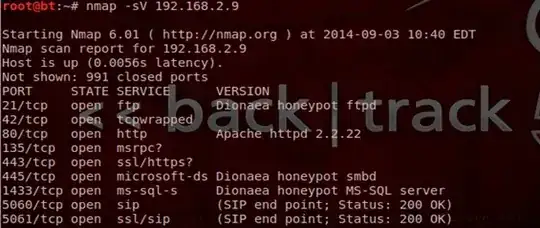I'm a contractor for a few companies. I build and host their systems on servers I rent from a popular international host. I store the system code on a popular, internationally hosted version control system. There are a mix of authentication techniques at various points, most of them near-best practices.
However, I also layer on some obscurity. SSH is hidden, some things are encrypted in non-obvious ways. Alone these wouldn't be valuable but alongside the real security, I fend off most serious threats.
One of my clients got a data protection process request from one of their clients today: a huge government organisation. They obviously take this red tape stuff pretty seriously and have sent us a long questionnaire that asks for specific security detail. Not just about the data we collect but also where it's secured, how it's secured, where the locks are and who has the keys.
The last few of those things are the sort of stuff I keep hidden from my clients, not to mention theirs. As the person with all the keys, I'm very conscious of this overused but accurate comic:
Currently my clients' clients don't know about me. Not really. But if we comply with their request, anybody with access to this request, suddenly knows who I am, where I am, what I have access to. If you wanted to break into their portion of this system, you come after me.
And you can go deeper. Part of this request mentions Access Control Policies and gives an example that explains where (exactly, geographically) a private key is stored. If you follow this through every system that tangentially touches the data they submit, they have a map of every system we use and know who to come to (or hack) to gain access to the whole thing. It unsettles me.
My question is, in your experience, is there a way to comply with security procedure requests that doesn't target specific people, computers or even ports?
Very little of this stuff is actual legal requirement. We already meet data protection act guidelines... But again, being a large government agency, their drive to tick boxes seems several powers greater than any other organisation.
Just a couple of clarifications.
My client has details on the system. They have no direct access to server operations. They have access to the version control system and receive encrypted data backups on a very regular schedule and have a document (and encryption keys) that explains how to replace the system I run with one of their own in the event of my untimely demise. We have discussed the overview but the exact details are under physical lock and key.
We aren't dealing with launch codes. Names, contact information and IP addresses. I didn't expect this would be relevant to the question but people are bringing up the two-man rule. That's way over the top here. This is technically sub-PCI-DSS.
I am developer and operations for this small company (as well as others). Many of you are talking about me being the weak point. I am. One wrench and you have the data I have. That's why I'm asking.
Please, rather than just pointing this out, some suggestions on what to do about these things on a small scale would be more useful. I can't be the only devop on the planet who tangentially deals with governments.
